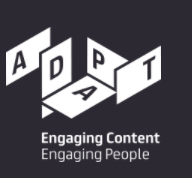Document Type
Conference Paper
Rights
Available under a Creative Commons Attribution Non-Commercial Share Alike 4.0 International Licence
Disciplines
Computer Sciences
Abstract
Self-reporting procedures have been largely employed in literature to measure the mental workload experienced by users when executing a specific task. This research proposes the adoption of these mental workload assessment techniques to the task of creating uplift mappings in Linked Data. A user study has been performed to compare the mental workload of “manually” creating such mappings, using a formal mapping language and a text editor, to the use of a visual representation, based on the block metaphor, that generate these mappings. Two subjective mental workload instruments, namely the NASA Task Load Index and the Workload Profile, were applied in this study. Preliminary results show the reliability of these instruments in measuring the perceived mental workload for the task of creating uplift mappings. Results also indicate that participants using the visual representation achieved smaller and more consistent scores of mental workload.
DOI
https://doi.org/10.1007/978-3-030-14273-5_10
Recommended Citation
Junior A.C., Debruyne C., Longo L., O’Sullivan D. (2019) On the Mental Workload Assessment of Uplift Mapping Representations in Linked Data. In: Longo L., Leva M. (eds) Human Mental Workload: Models and Applications. H-WORKLOAD 2018. Communications in Computer and Information Science, vol 1012. Springer, Cham. DOI: 10.1007/978-3-030-14273-5_10
Funder
CNPQ, National Counsel of Technological and Scientific Development – Brazil; Science Foundation Ireland



Publication Details
Human Mental Workload: Models and Applications (Springer Nature)